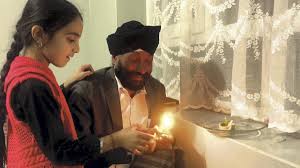- About
- Topics
- Picks
- Audio
- Story
- In-Depth
- Opinion
- News
- Donate
- Signup for our newsletterOur Editors' Best Picks.Send
Read, Debate: Engage.
| located: | Afghanistan |
|---|---|
| editor: | Shadi Khan Saif |
In the deadly conflict that has engulfed Afghanistan for decades, this month the country lost an important figure: a man who was the intriguing face of a relegated yet vibrant Afghan civil.
Rawail Singh was among the 19 people – mostly Afghan Sikhs and Hindus – killed by an Islamic State bomber in the eastern city of Jalalabad on Sunday 1 July, in what appears to be a clumsy security failure brazenly exploited by the dark forces of hatred, terror and ignorance.
Singh and other Sikh civilians were on their way to meet the Afghan president, Mohammad Ashraf Ghani, in a bid to support their only candidate for the parliament (Wolesi Jirga), Avtar Singh Khalsa. Singh was in the forefront with Avtar in this desperate move to secure – through a strong voice among the legislators – the endangered identity of his Sikh people in the conflict-struck country.
Together with his friends at the Art Lords, a group promoting a message of peace in Afghanistan through the expressivity of the arts and culture, Singh worked on many pieces of street art in Kabul about global peace icons such as Mahatma Gandhi and Bacha Khan. One such mural has a close-up of Komal's eyes, Singh's daughter, with the message: “Bribe-takers are not hidden from the eyes of God and the people.”
Thinking of Rawil and this young orphan while passing by this mural now breaks my heart.
In all these years of war, among the most vulnerable and innocent who have fallen prey to the seemingly ceaseless spate of killings in the country, the latest loss of lives among the Afghan Sikh community is yet another grim reminder to the reality: dark forces of horror and ignorance can only bring destruction and miseries. These tragedies have been repeated time and time again; during shameless assaults on journalists, doctors and other groups not party to the conflict.
In the case of the Sikhs, years of untiring efforts and demonstrations of patriotism were behind the landmark allotment of one reserved seat in the parliament for this community back in 2016. And before his recent killing, Singh was possibly the most cherished and deserving Sikh candidate to face a history entry into parliament.
Despite this tragedy, the very existence of a minority such as Sikhs in the conservative Muslim society in Afghanistan proves the roots of tolerance and harmony. As Afghans go to elections in October, the Kabul government needs to ensure that the seat – for which such a heavy price has already been paid – does not remain vacant.
